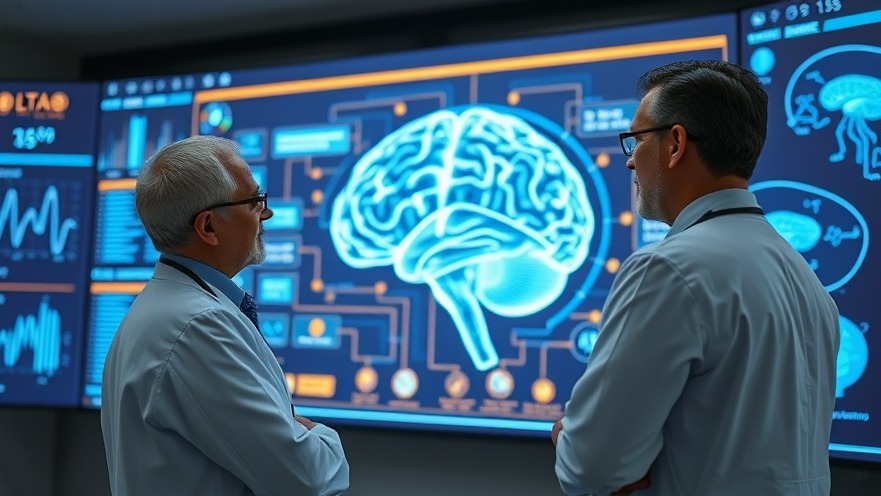
The Groundbreaking Advancement in Brain Health Monitoring
Recent technological advancements are paving the way for a more profound understanding of the brain's waste removal systems. Scientists from the University of Washington School of Medicine have developed a new head cap device that allows real-time monitoring of the glymphatic system—the brain's method for clearing out waste and delivering essential nutrients. This innovative approach could revolutionize how we prevent and treat neurological diseases such as Alzheimer's and Parkinson's.
Understanding the Glymphatic System
The glymphatic system is crucial in maintaining brain homeostasis, clearing out toxic proteins that accumulate during wakefulness. Prior to this study, monitoring the glymphatic system required MRI technology—a lengthy process not suitable for tracking rapid physiological changes associated with sleep stages. The new device, however, employs embedded electrodes to measure variations in brain fluid, providing real-time data on neural activity during different sleep phases.
Insights from Sleep Patterns
A standout feature of this study is its ability to capture how the glymphatic system functions throughout sleep, challenging previous assumptions made through animal studies. Researchers found that the glymphatic system is not merely 'on' during slow-wave sleep and 'off' during wakefulness; instead, its waste-clearing function becomes more active with prolonged sleep durations, continuing its work even as a person begins to awaken. This nuanced understanding offers exciting implications for developing new therapeutic strategies targeting enhanced glymphatic function.
The Importance of Sleep in Neurological Health
Sleep quality is intrinsically linked to brain health, impacting amyloid clearance and overall cognitive function. Poor sleep patterns can impair the glymphatic system's efficacy, leading to abnormal protein accumulation. The study's findings underscore the potential for healthcare practitioners to better advise patients on sleep hygiene as part of a comprehensive approach to neurological wellness.
Future Directions for Therapeutics
Understanding the glymphatic system's operation could lead to enhanced therapeutic avenues. If clinical studies can establish that improving glymphatic function directly affects the progression of neurodegenerative diseases, it may prompt a shift in how treatments for Alzheimer's and Parkinson's are developed. The ability to monitor waste clearance effectively opens doors for both preventative and therapeutic interventions.
What It Means for Concierge Health Practitioners
This study highlights a critical intersection of technology and healthcare that concierge health practitioners can leverage. With insights into the relationship between sleep, glymphatic function, and neurological disease, practitioners can enhance patient care by integrating sleep assessments into routine evaluations. Engaging patients in conversations about sleep quality and its importance may lead to earlier interventions that can stave off cognitive decline.
Actionable Insights for Practitioners
1. **Education:** Equip yourself and your staff with knowledge about the glymphatic system and its implications for brain health.
2. **Integrate Sleep Assessments:** Develop protocols that include sleep pattern evaluations as part of your patient assessments.
3. **Patient Education:** Empower patients with information about the importance of sleep hygiene and its role in cognitive health, encouraging them to adopt better sleep practices to support their overall brain wellness.
Final Thoughts
The research by the University of Washington marks a pivotal moment in brain health monitoring. As concierge health practitioners, staying ahead of advancements in neurology will benefit not only practice development but, more importantly, the health outcomes of your patients. Equip yourself with the latest findings and anticipate how innovative technologies can enhance your practice.
 Add Row
Add Row  Add
Add 






Write A Comment